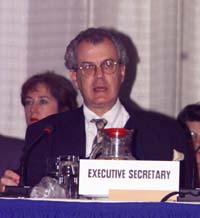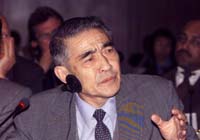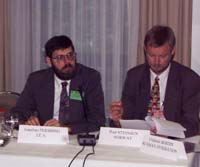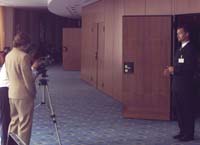|
UNFCCC
Subsidiary Bodies get down to work
On
day one of the tenth sessions of the UNFCCC subsidiary bodies
in Bonn, participants met informally in the morning for consultations
on compliance and a Joint Working Group (JWG), which is to
begin discussions on the issue Wednesday. The JWG will be
co-chaired by Harold Dovland (Norway) and Espin Rønneberg
(Marshall Islands). The European Union repeated its view that
a "comprehensive, coherent, unified, strong, efficient
and effective compliance system is essential for the successful
implementation and application of the Kyoto Protocol."
The EU is calling for a preventive approach to compliance,
with provision to help Parties fulfil their obligations. The
EU also supports soft and hard measures to ensure full and
timely implementation. NGOs are pressing for the JWG to determine
which commitments in the Protocol are relevant to its mandate
by developing a list of those commitments, and to identify
issues to be handled i.e. review discussion, flexible mechanisms.
|









